Nomadic children in Mali are unable to attend regular lessons because their families change location up to three times a year. The solution? Mobile schools.
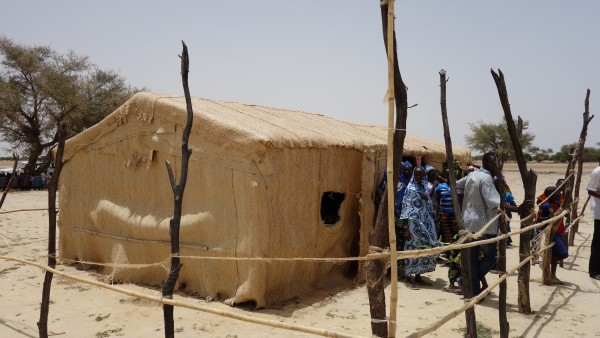
A sustainable concept
Made from branches and raffia mats, the nomadic school is easy to pack up and put back together again.
The sound of chalk scribbling on slates fills the room; just a few rays from the midday sun fall through the roof, which is made from raffia mats. The pupils sit rather restlessly on their benches. All in all, it's just a normal day in teacher Amadou Traoré's classroom. The lesson comes to an end at 12 o'clock, just like any other day. However, just one factor has changed today. Once the pupils have tidied away their books and packed up their pens, they join their parents and help to pack away the entire classroom.
Their lessons are held in one of the mobile schools that join nomads and semi-nomads from the West African country of Mali as they journey through the Niger Delta. They change locations two to three times a year, covering distances of up to 600 kilometres. These schools form the heart of the PISE educational programme (Programme d’Investissement Sectoriel de l’Education), which was set up by the government of Mali with financial support from KfW Development Bank on behalf of the German Federal Ministry for Economic Cooperation and Development. The programme is run by the German organisation Welthungerhilfe. The aim of the project is to improve education for disadvantaged groups in Mali, a country where very few people can read and write.
"Literacy rates among nomads are particularly low," says Vanessa Gleiss, who supervised the project at KfW Development Bank. "This is primarily down to the fact that they are never in one place long enough to send their children to school on a permanent basis." For the majority of parents, boarding schools are not a viable alternative either as they rely on support from their sons and daughters during day-to-day life and are also unable to secure the finances needed.
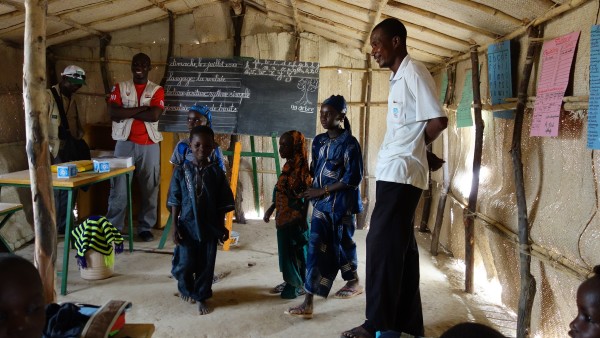
Plans for the future
The pupils love their lessons; some are already making plans for their future careers, which include teachers and police officers.
To make sure children have the chance of getting an education, the programme assigns a teacher to each village community. The teacher then begins to accompany the nomads on their travels. The communities also receive school equipment, such as folding tables and benches that are easy to transport. The pupils don't just learn about subjects on the government curriculum. They also learn about topics that support their families' work, such as cattle breeding and farming. What's more, they receive lots of lessons on the history and customs of nomads in Mali. "As fishermen, we long thought that education was only something you got in cities," says Samba Korenzo, leader of the nomadic community of Sirétaba. "But now we see how important it is for us — for example, we can look up a number in the phone directory and then dial it. The school has now become an important part of our community."
In the early days of the programme, there was no guarantee that it would go on to be so successful. In March 2012 — just a few weeks after the first mobile schools opened — there was military coup against former President Amadou Toumani Touré in the capital city of Bamako. The coup was the result of an uprising by Tuareg rebels and radical Islamists against the Malian government. And the effects are still leading to violence across the entire country to this day. "The instability meant that local educational offices were left empty for extended periods," says Vanessa Gleiss. "A few of the mobile schools had no staff for a while. Meanwhile, it was too dangerous also for the Welthungerhilfe team to visit the individual nomadic communities in northern Mali." The fighting led to large numbers of nomads relocating to the south-west of the country — and taking their schools with them.
Source
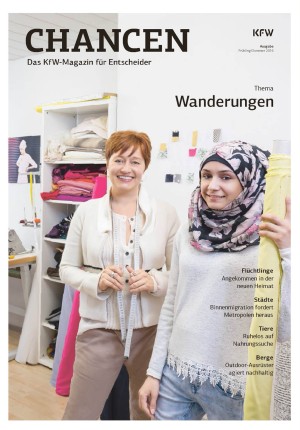
This article appeared in the spring/summer 2016 issue of CHANCEN focusing on migration.
To German editionDespite the political unrest, lessons continued in the 88 mobile schools and continue to do so to this day, mainly thanks to the children's parents. In his role as teacher, Amadou Traoré has also noticed how much of the project's future relies on them. "I'm not really sure who is more motivated, the parents or the children," he says. Whichever it is, the pupils are certainly aiming high. Take eight-year-old Moussa from Traoré's class, for instance, who is hoping to become a teacher himself and wants to teach his younger brothers and sisters. His classmate Bocar is ambitious, too. "I would like to become a police officer and bring an end to the unrest in our country."
Published on KfW Stories: Friday, 31 March 2017
The described project contributes to the following United Nationsʼ Sustainable Development Goals
Goal 4: Quality education
Refusing people access to education means depriving them of a basic human right – and of important development prospects for individuals and society. Education enables people to improve their political, social, cultural, and economic situations. Worldwide, 58 million children and 63 million young people still do not have access to primary and secondary schools. 90 per cent of all children with a disability never go to school. 781 million people are illiterate. 7.5 million people with functional illiteracy live in Germany alone.

All United Nations member states adopted the 2030 Agenda in 2015. At its heart is a list of 17 goals for sustainable development, known as the Sustainable Development Goals (SDGs). Our world should become a place where people are able to live in peace with each other in ways that are ecologically compatible, socially just, and economically effective.

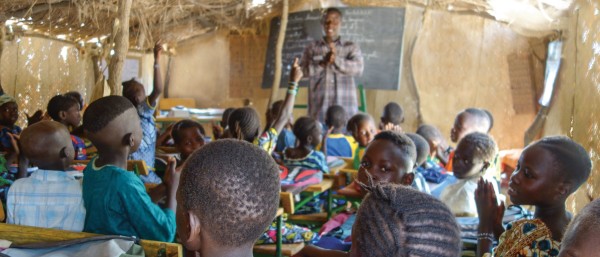
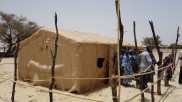
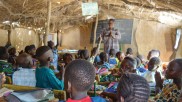
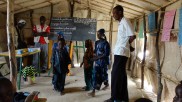
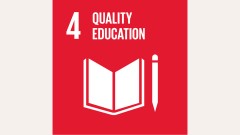

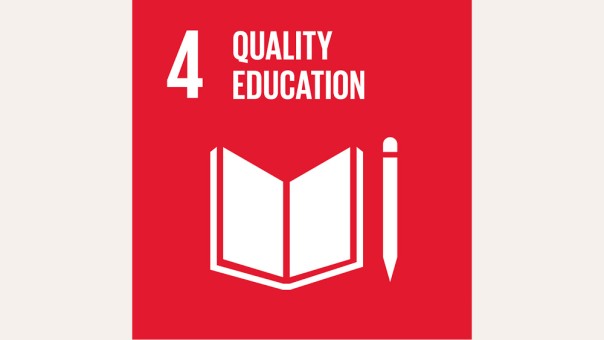

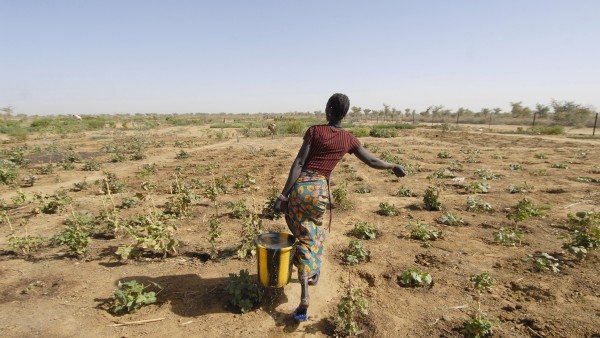
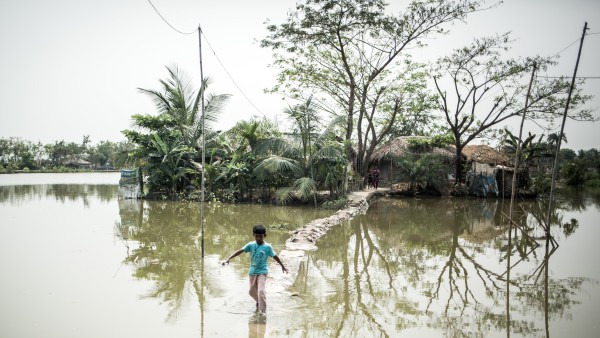
Data protection principles
If you click on one of the following icons, your data will be sent to the corresponding social network.
Privacy information